Grocery price inflation fell marginally in the four weeks to April 16, but remained in double digits for the tenth month consecutively.
Food inflation dropped to 17.3% compared with 17.5% in March, according to the latest Kantar market data.
Take-home grocery sales saw an 8.1% increase compared with last month.
Kantar head of retail and consumer insight Fraser McKevitt said: “The latest drop in grocery price inflation will be welcome news for shoppers, but it’s too early to call the top. We’ve been here before when the rate fell at the end of 2022, only for it to rise again over the first quarter of this year.
“We think grocery inflation will come down soon, but that’s because we’ll start to measure it against the high rates seen last year. It’s important to remember, of course, that falling grocery inflation doesn’t mean lower prices, it just means prices aren’t increasing as quickly.”
As customers continued to navigate rising inflation, own-label sales increased by 13.5% with the cheapest value own-label lines growing by 46% year on year.
McKevitt said: “These products now find their way into nearly one in five baskets. Branded sales are going up but more slowly at 4.4%.”
Supermarkets enjoyed a record-breaking Easter, with 38 million chocolate eggs and treats bought in the run-up to Easter Sunday and hot cross bun sales up 5% in volume compared with last year.
Aldi and Lidl take the lead
Aldi and Lidl continue to take the lead by hitting new record market shares of 10.1% and 7.6% respectively.
Lidl was the fastest-growing grocer with sales increasing by 25.1%; Aldi was just behind with 25%.
McKevitt said: “Consumers are continuing to shop around, visiting at least three major retailers every month on average. The discounters have been big beneficiaries of this, with Aldi going past a 10% market share for the first time this month. That’s up from 5% eight years ago in 2015, so we can see just how competitive the market can be.
“Retailers are really battling it out to show value to shoppers, but if consumers feel their offer isn’t quite right then they’ll go elsewhere.”
The three largest grocers continued to grow at similar rates in the 12 weeks to April 16.
Asda sales grew by 8.8% year on year, taking a 14% share of the market.
Tesco and Sainsbury’s saw an 8% and 8.7% increase in sales respectively, giving the retailers a 27% and 14.9% share of the sector.
Morrisons claimed an 8.7% share of the market while Co-op’s share remained constant at 5.7%, with sales growing by 2.7% in the latest 12 weeks.
In its best performance since June 2021, Waitrose sales increased by 3.2% expanding its market share to 4.5%.
- Get the latest grocery news and analysis straight to your inbox – sign up for our weekly newsletter





















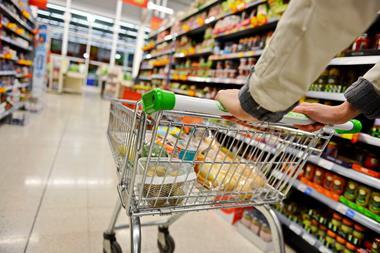
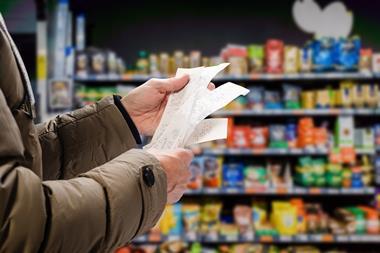
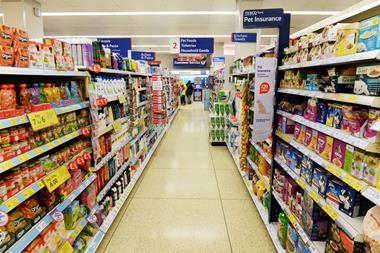
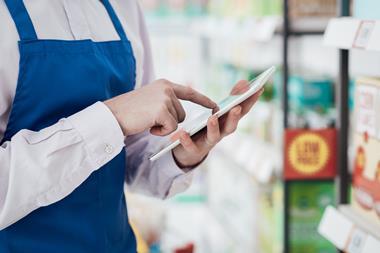
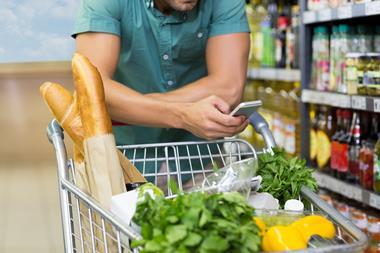
No comments yet